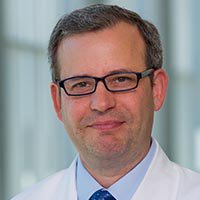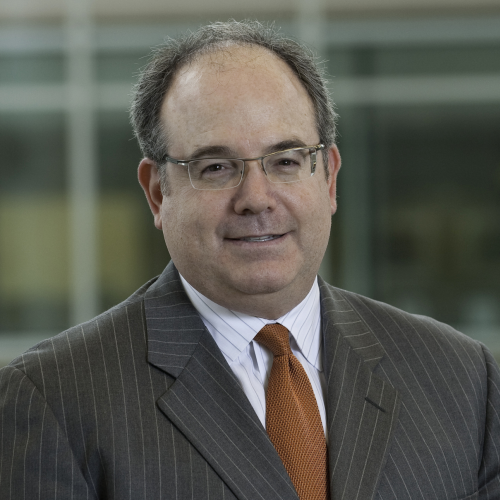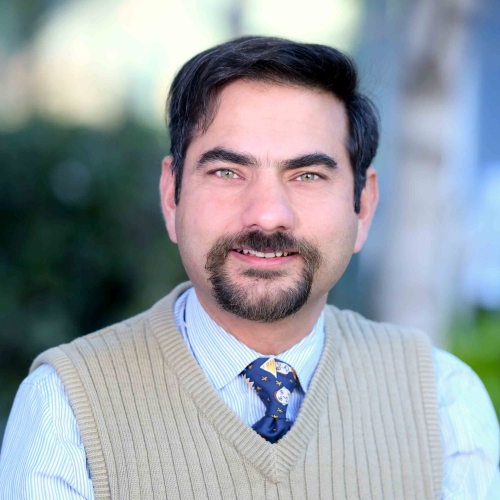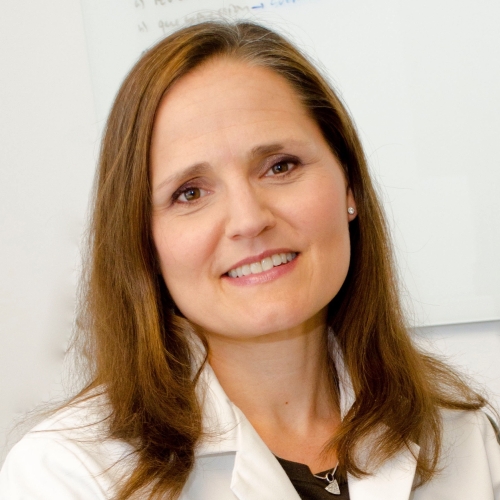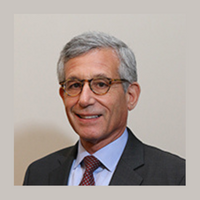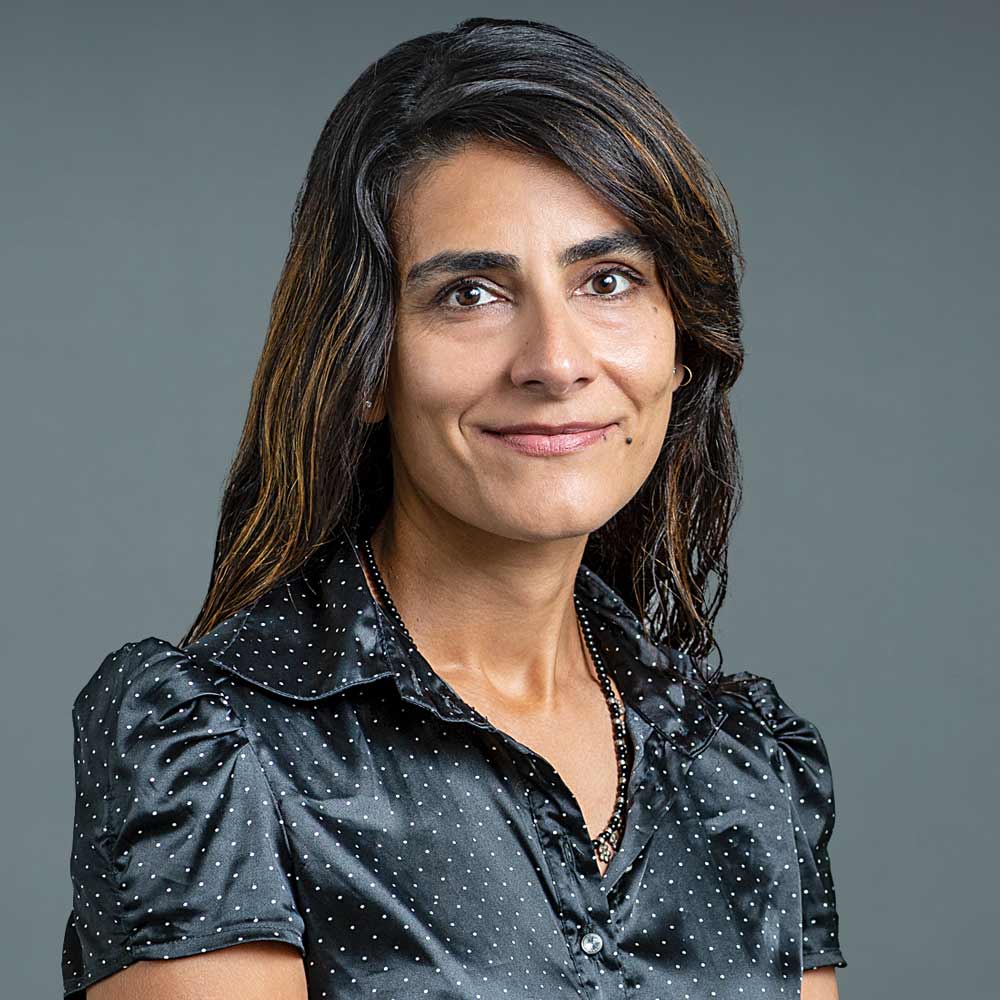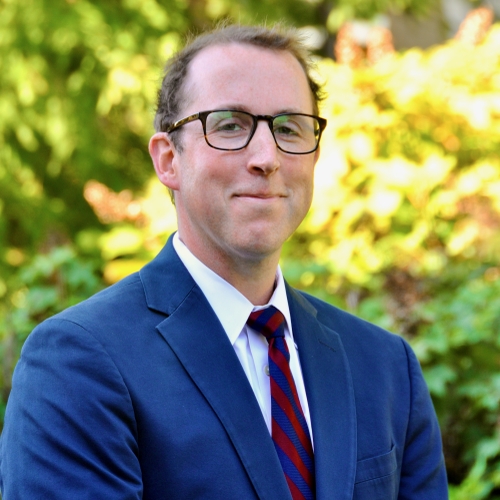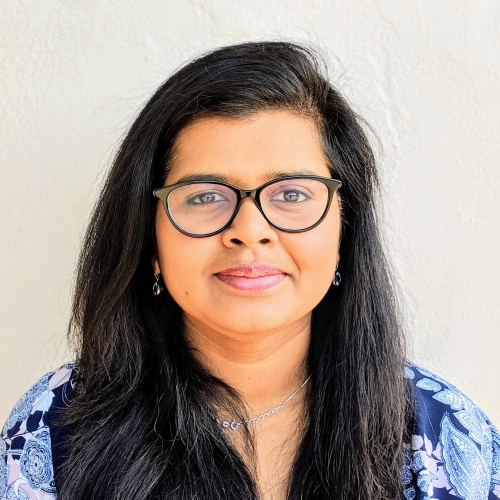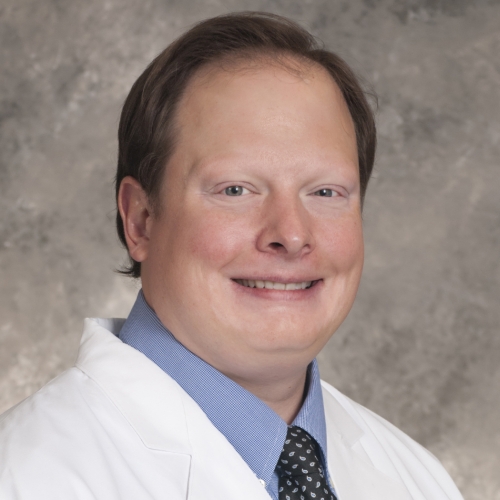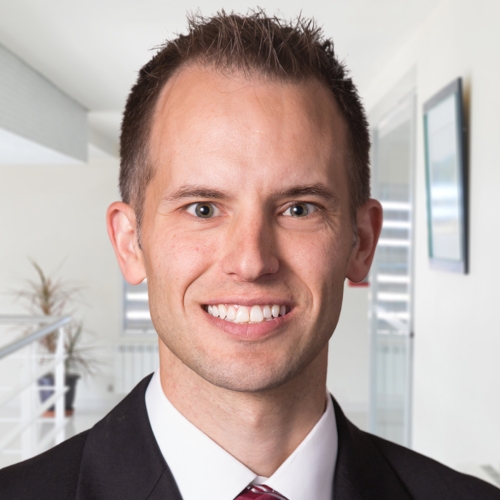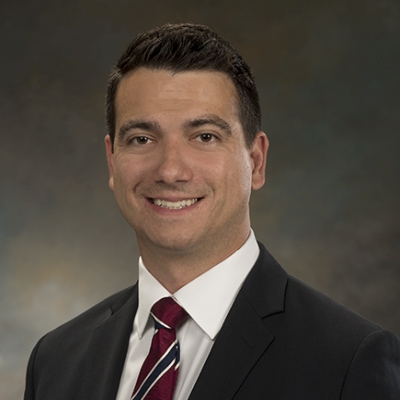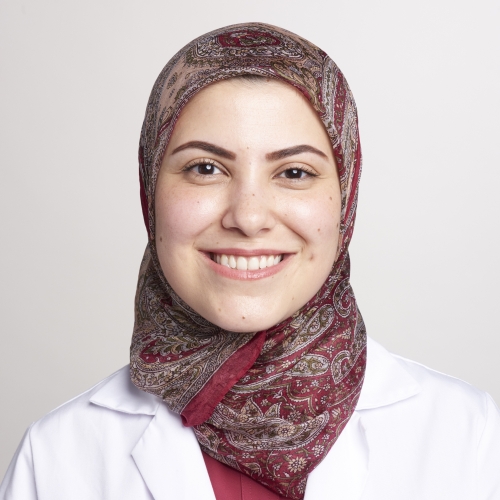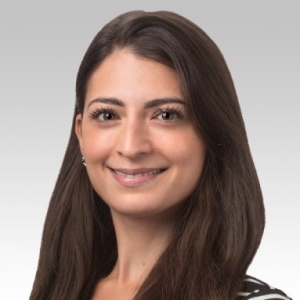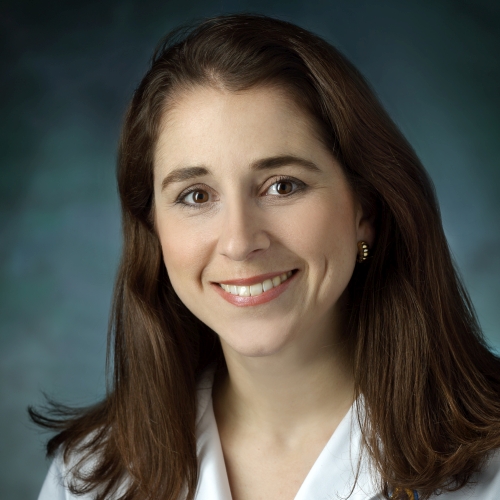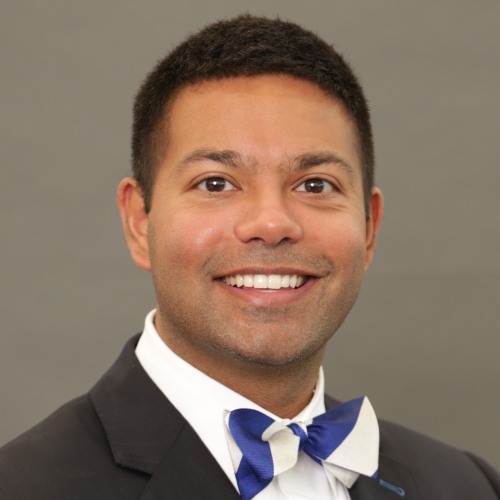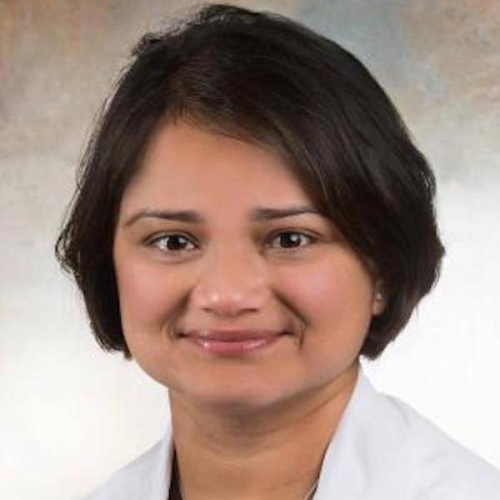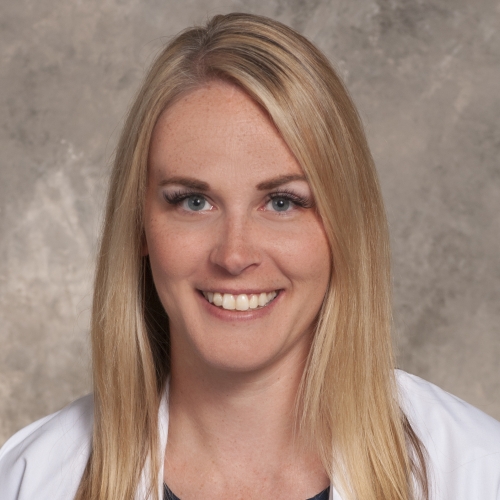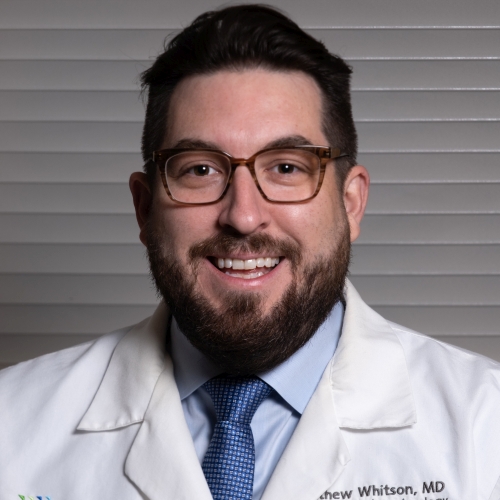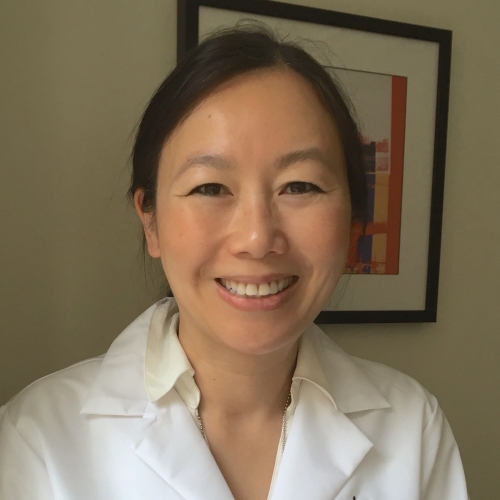Home > AGA Leadership > Initiatives & Programs > Future Leaders Program
Future Leaders Program
AGA relies heavily on the engagement and expertise of volunteer leaders to develop strategic initiatives, execute programs and advise as our profession evolves. As such, there is a need to ensure a healthy pipeline of future leaders who can effectively meet the obligations of key leadership positions within the organization and help advance the objectives of AGA and, ultimately, the field.
The Future Leaders Program, an AGA leadership pathway, positions early career GIs on a track to impact the organization and the field. The award-winning program curriculum empowers participants with purposeful opportunities to network, connect with mentors and develop leadership skills. The upcoming cohort will have an enhanced focus on crucial emerging issues to support our profession while advancing their careers.
- The changing demographics of the physician workforce (gender, DEI, APPs).
- Evolving business structures: private equity, large independent practices, healthcare systems.
- The rise of physician-entrepreneurs and innovators.
- The increasing role of artificial intelligence and digital health.
- Navigating industry and understanding innovations in medical devices that impact patient care.
- Understanding the role of healthcare in the climate change debate.
- New sub-specialty focus areas in GI such as obesity management and precision-medicine.
- Understanding “crosstalk” which involves collaboration beyond the GI specialty with other specialties such as surgeons, anesthesiologists, nurses, and other members of the healthcare workforce.
Applications are now open for mentees and mentors.
Mentees
Future Leaders are emerging leaders being prepared for future leadership roles. They will actively participate in projects and initiatives, gaining direct experience and developing their leadership skills.
- Participate actively in shadowing of AGA committees and the development of projects contributing to achieving goals.
- Collaborate with team members and seek guidance from Mentors and Alumni co-chairs.
- Take on leadership roles within projects to develop practical skills.
- Provide fresh perspectives and innovative ideas to the program and committees.
- Engage in continuous learning and personal leadership development activities.
- Physician, surgeon, or scientists with a MD, PhD, DVM or equivalent who is within 11 years of graduation from their GI fellowship or post-doctoral training.
- Have the endorsement of at least two current AGA members (endorsement form will be provided in application materials).
- Commit to attend four face-to-face events, and two virtual leadership roundtables, participate in two one-on-one mentor meetings (virtual or in-person), and complete a group project under the direction of a senior project-based mentor.
- Current AGA member in North America.
-
Build leadership skills through mentoring, coaching, training and networking.
-
Collaborate with high-level mentors on programs to drive AGA’s mission and improve the collective future of GIs.
-
Gain the core competencies needed for a future leadership position within AGA.
Mentors
Mentor/Advisors are experienced professionals who provide expertise and guidance to the Future Leaders. They function as mentors and faculty on key future-focused issue areas.
- Primary responsibility is to be subject matter experts on a future focused topic and serve as faculty for the educational sessions.
- Serve as a Mentor to two Future Leaders in a triad, helping them to grow their skills and confidence.
- Provide feedback and recommendations to support project development and improve project outcomes.
- Foster a collaborative and supportive environment within the mentor-mentee team.
- Currently serving as an AGA volunteer leader on the Governing Board, AGA committees, or has served on either body within recent years.
- Has either been a past AGA president, Future Leader Mentor, Mentor Award Recipient, or served in another similar leadership roles within recent years.
- Must commit to be a project-based mentor using face-to-face and virtual interactions.
- Must commit to attend four face-to-face and two virtual leadership roundtable events, guide a project and provide career-development coaching to four mentees(s) as outlined in a mentoring plan.
- Current AGA member in North America.
Important dates
Applications close Monday, Oct. 18.
Class of 2022-2023
Future Leaders
- Jordan Axelrad, MD, MPH
- Edward Barnes, MD
- Elisa Boden, MD
- Parakkal Deepak, MD
- Renumathy Dhanasekaran, MD
- Luke Engelking, MD, PhD
- Phil Hart, MD
- Patrick Hickey, DO
- Maia Kayal, MD
- Leila Kia, MD
- Joanna Melia, MD
- Amit Patel, MD
- Sonali Paul, MD
- Nicole Rich, MD
- Shazia Siddique, MD
- Pooja Singhal, MD
- Matthew Whitson, MD, MSEd
- Kelley Yan, MD, PhD
Mentors
- Ezra Burstein, MD, PhD
- Christen Dilly, MD
- Michael Kochman, MD
- Rohit Kohli, MD
- Sonia Kupfer, MD
- Xavier Llor, MD, PhD
- Kimberly Persley, MD
- Robert Sandler, MD
- Aasma Shaukat, MD
Mentors
-
Ezra Burstein, MD, PhD
-
Christen Dilly, MD
-
Michael Kochman, MD
-
Rohit Kohli, MD
-
Sonia Kupfer, MD
-
Xavier Llor, MD, PhD
-
Kimberly Persley, MD
-
Robert Sandler, MD
-
Aasma Shaukat, MD
Ezra Burstein, MD, PhD
Professor and Division Chief
Southwestern Medical Center
[email protected]
Dr. Burstein received his medical degree from Cayetano Heredia University in Lima, Peru. He completed internal medicine residency training at UT Southwestern and gastroenterology fellowship training at the University of Michigan. Thereafter, he was also a research fellow at the Vaccine Research Center at the NIH. After completion of his training, he joined the Faculty at University of Michigan (2002-2008), and was later recruited to UT Southwestern, joining the Departments of Internal Medicine (Division of Digestive and Liver Diseases) and Molecular Biology.
Dr. Burstein′s research training and expertise is in the area of molecular immunology. Broadly, the work in his laboratory is focused on basic mechanisms that control inflammatory responses in human disease, particularly inflammatory bowel disease (IBD). Work from the laboratory has investigated the regulation of the NF-kB transcription factor, which led to the discovery of the COMMD protein family. Thereafter, his group has also investigated the basic functions of these factors in immune regulation, including the recent discovery of their role in endosomal protein sorting. More recently, the lab began investigating the genetic and molecular basis of altered immunity in patients with defined Mendelian disorders. These studies have led to important discoveries, including the identification of cytosolic RNA:DNA hybrids as regulators of the interferon pathway.
Christen Dilly, MD
Assistant Professor of Medicine
Indiana University School of Medicine
[email protected]
Christen Dilly is a general gastroenterologist with a career focus on medical education. She truly loves her work, and this drives her to help learners and colleagues develop fulfilling careers. Her clinical practice is at the Roudebush VA Medical Center, where she directs the weight loss clinic, performs endoscopic therapies for Barrett’s esophagus and other upper GI pathologies, and removes large colon polyps. As her capstone project for a Master of Education degree, she developed and now directs the Clinician Educator Training Pathway for residents and fellows across all GME programs (clin-ed.squarespace.com). In conjunction with this program, she conducts research into professional identity formation in future educators. She is the Key Clinical Educator for the GI division, responsible for the education effort for medical students and residents. She is the co-site director for the GI/nutrition course for second-year medical students. She runs the GI clinical elective and a new online elective for senior medical students. She is the faculty advisor for the GI student interest group and for the GME House Staff Forum. At the fellowship level, she is starting a new role as the chair of the clinical competency committee. She also enjoys faculty development, and she has facilitated several faculty learning communities centered around the scholarship of teaching and learning. She is the co-director of the AGA Academy of Educators, where she is working to help GI educators across the country develop as educators.
Michael Kochman, MD
Wilmott Family Professor of Medicine and Surgery
Perelman School of Medicine at the University of Pennsylvania
[email protected]
Michael L. Kochman, MD, AGAF, FASGE is the Wilmott Family Professor of Medicine and Professor of Medicine in Surgery in the Gastroenterology Division at the Perelman School of Medicine at the University of Pennsylvania and Hospital of the University of Pennsylvania. Dr. Kochman is a graduate of Northwestern University (BA, Economics, 1982) and the University of Illinois Medical School at Chicago (MD, 1986). He served his residency at the University of Illinois at Chicago and was Chief Resident at West Side VA under Dr. Clifford Pilz from 1989-90. Subsequently Dr. Kochman completed his fellowship in Gastroenterology and Hepatology at the University of Michigan Hospitals and Clinics in Ann Arbor in 1993 under the direction of Drs. Chung Owyang and Tadataka Yamada. During that time Dr. Kochman also underwent training in interventional endoscopy and had specialized training in endoscopic ultrasound at Indiana University under the auspices of Drs. Robert Hawes and Maurits Wiersema. Subsequently he was recruited to the University of Pennsylvania by Dr. Peter Traber, were he rose through the ranks from Assistant Professor.
While at the University of Pennsylvania he has served in various capacities including as Vice-Chair for Clinical Services and as Development Officer for the Department of Medicine, on the School of Medicine Committee of Appointments and Promotions (COAP), the Physicians Billing Oversight Committee and numerous Departmental Review and Search Committees. Within the GI Division he has served as Fellowship Chairman and runs the regular endoscopy and advanced endoscopy training programs and directs the Wilmott Center for Endoscopic Innovation, Research, and Training. He has received a number of awards including the Luigi Mastroianni Clinical Innovator and Special Recognition Patient Advocacy Awards from the Health System as well as the Sid Cohen, MD and Donald Martin, MD awards for the education of fellows and residents.
Dr. Kochman has served many local and national societies in a variety of positions. He was honored and inducted as a Fellow into the College of Physicians of Philadelphia. The ASGE recognized him as the ‘Master Endoscopist’ in 2015 and the AGA recognized him as the ‘Distinguished Academic Clinician’ in 2018. His current major national commitments are to the American Gastroenterological Association (AGA) as a Governing Board Councilor and a Vice-Chair of the Research Foundation, the Society of American Gastrointestinal and Endoscopic Surgeons (SAGES) and to the Natural Orifice Surgery Consortium for Assessment and Research (NOSCAR). He has served the AGA on the Education Committee, the Public Affairs Committee, was Chair of the Regulatory Workgroup and is past Chair of the Center for GI Technology. Dr. Kochman served as Chair of the GIE Editorial Board, treasurer of the ASGE Foundation, and was a Councilor of the ASGE Governing Board. Also, for the ASGE Dr. Kochman has served on the Post-Graduate Education Committee, the EUS SIG, the Research Committee, the Program Committees and has directed numerous post-graduate courses. He is a past president of the Delaware Society for Gastrointestinal Endoscopy and was the Program Chairman for the Pennsylvania State Gastroenterology Society.
Dr. Kochman regularly speaks for various local GI societies and at SGNA meetings. He is a frequently a faculty member at national and international meetings as a lecturer, moderator and at Meet the Professor sessions on various topics including management of neoplasia, maintenance of luminal patency, EMR, EUS, and ERCP. He also serves as faculty for hands-on training courses held both nationally and internationally for EUS, ERCP, endoprosthetics, and hemostasis.
Dr. Kochman is Editor for Techniques in Gastrointestinal Endoscopy. Dr. Kochman has published over 250 articles, chapters and videos. He has edited 19 published books: among them, the Clinicians Guide to Gastrointestinal Oncology (ed Kochman), Advanced Gastrointestinal Endoscopy (eds Ginsberg, Gostout, Kochman and Norton), and Endoscopic Oncology: Gastrointestinal Endoscopy and Cancer Management (eds Faigel and Kochman).
Rohit Kohli, MD
Chief, Division of Gastroenterology and Hepatology
Children’s Hospital of Los Angeles
[email protected]
Rohit Kohli is a Pediatric Hepatologist by training and currently responsible for the Division of Pediatric Gastroenterology, Hepatology, and Nutrition at Children’s Hospital Los Angeles and a Professor of Pediatrics at the Keck School of Medicine at USC. His clinical interest is rare pediatric liver diseases especially in inborn errors of lipid storage and their consequence of chronic liver disease and liver transplantation. His research work is focused on obesity-related fatty liver disease (NASH) and the role of bile acid signaling in weight loss surgeries driven improvement of obesity and its associated morbidities, such as NASH.
Sonia Kupfer, MD
Associate Professor
University of Chicago
[email protected]
Sonia Kupfer is an adult gastroenterologist with clinical and research interests in inherited gastrointestinal cancers and health disparities. She serves as Director of the Gastrointestinal Cancer Risk and Prevention clinic at the University of Chicago. She graduated from Yale University and completed her medical training including Chief Residency and Gastroenterology fellowship at the University of Chicago. She is an Associate Professor and Associate Section Chief for Education. She serves as Chair of the Cancer Health Disparities working group in the UChicago Comprehensive Cancer Center. Dr. Kupfer holds grants from the National Institute of Health to study colorectal cancer disparities. Dr. Kupfer is Past-President of the Collaborative Group of the Americas on Inherited Gastrointestinal Cancer. She serves on several committees for the American Gastroenterological Association (AGA). In 2017, Dr. Kupfer was awarded the Division of Biological Sciences Diversity and Inclusion Junior award and the Joseph B. Kirsner Mentorship Award. In 2019, Dr. Kupfer was awarded the AGA Young Investigator Award.
Xavier Llor, MD, PhD
Co-Director, Cancer Genetics and Prevention Program
Yale University School of Medicine
[email protected]
After obtaining his MD degree from the Autonomous University Barcelona, Dr. Llor trained in basic research and Internal Medicine at the University of Chicago and completed his GI fellowship at the University of Illinois at Chicago. He complemented his training with a PhD degree in molecular biology from the University of Barcelona. A clinically active gastroenterologist, Dr. Llor’s research and clinical interests relate to colorectal cancer. He has a very active basic and translational research program mainly focusing on two different aspects of colorectal cancer: hereditary and familial forms, and disparities in colorectal cancer. This work has resulted in almost 100 scientific publications in this field. He has made seminal contributions to the field of Lynch syndrome diagnosis as well as in the definition of other non-polyposis syndromic colorectal cancer cases. Some of his most recent work is providing important clues to the understanding of the biological differences that contribute to disparities in colorectal cancer.
Dr. Llor is the Director of the Smilow Cancer Genetics and Prevention Program; Associate Director for Cancer Screening, Community Engagement and Health Equity (CEHE); and Medical Director of the Colorectal Cancer Prevention Program at Yale University and Smilow Cancer Hospital and he sees patients at Yale. He is a member of the steering committee of the National Colorectal Cancer Round Table (NCCRT) and member of the National Comprehensive Cancer Network (NCCN) guidelines panels for colorectal cancer screening and colorectal cancer genetics. He is commonly invited to lecture in colorectal cancer genetics in the US and abroad.
Kimberly Persley, MD
Gastroenterologist
Texas Digestive Disease Consultants
[email protected]
Dr. Persley is a native Texan. She was born in San Antonio and raised in Fort Worth, Texas. She graduation for O.D. Wyatt High School in 1985 as class Salutatorian. She played the bassoon in high school and received a music scholarship to Texas Wesleyan University. She changed her major to Biology in her Sophomore year and graduated with a BS in Biology in 1989. She was accepted to University of Texas Southwestern Medical School and graduated with a Doctor of Medicine degree in 1993. Dr. Persley completed her internship and residency in Internal Medicine at University of Texas Southwestern Medical School. She stayed an additional year as Chief Resident in Internal Medicine at Parkland Hospital and the Dallas VA Medical Center.
Dr. Persley decided to specialize Gastroenterology and Hepatology. She was accepted to UTSW Gastroenterology fellowship program. She completed her Gastroenterology fellowship training in the June 1999. She did additional study in Inflammatory Bowel disease. She completed her Inflammatory Bowel Disease fellowship at Mount Sinai Medical Center in New York in 2001.
After completing her IBD fellowship, she moved back to Dallas and started her career in private practice. She joined Dallas Digestive Disease Consultants in 2001. In 2008, her group merged with Texas Digestive Disease Consultants. She is currently a partner with GI Alliance. She has interest in Inflammatory Bowel disease, Women’s Issues and Wellness. In her practice, she participates in clinical research. She as been recognized by D Magazine for several years in the annual “Best Doc” edition. Dr. Persley has been on the medical staff of Texas Health Presbyterian Hospital since 2001. She as served on the Medical Board and Professional Peer Evaluation Committee.
Dr. Persley as actively involved in several professional organizations including the American Gastroenterological Association, American Medical Association, Texas Medical Association, Crohn’s and Colitis Foundation, America College of Lifestyle Medicine and the Texas Ambulatory Surgical Center Association. She was past president of the Texas ASC Society. Dr Persley was recipient of the 2020 American Gastroenterology Association Distinguished Clinician Award and the 2020 Crohn’s and Colitis Foundation North Texas/Oklahoma Chapter Physician of the year.
In her spare time, Dr. Persley enjoys travelling with her family. She is a member of St Luke Community United Methodist Church where she has gone on several mission trips to Cuba, Puerto Rico and Zimbabwe. She is a runner and has completed 4 marathons. Her next big adventure will be a trek to Mt. Kilimanjaro in Tanzania in 2022.
Robert Sandler, MD
Director, Center for Gastrointestinal Biology & Disease
University of North Carolina Chapel Hill
[email protected]
Robert S. Sandler, MD, MPH, AGAF, received his undergraduate degree, summa cum laude, from Union College in Schenectady, New York. He received his medical degree from Yale University School of Medicine, New Haven, Connecticut, and his Master of Public Health from University of North Carolina (UNC), Chapel Hill. Dr. Sandler has committed his entire professional career to UNC, serving in growing capacities since he first joined the department of medicine as a GI fellow in 1978. He now serves as the Nina C. and John T. Sessions distinguished professor of medicine.
Dr. Sandler can be credited with giving the field of digestive disease epidemiology and outcomes an early boost. He has maintained an extraordinarily productive career over the past 30 years that has focused on research investigating the etiology and prevention of colon cancer; training and mentoring a generation of GI epidemiologists and academic gastroenterologists; directing the UNC’s multidisciplinary NIDDK-funded Center for Gastrointestinal Biology and Disease; developing a national clinical trials data management resource; and leading an outstanding division of gastroenterology and hepatology.
Dr. Sandler has worked selflessly for AGA in many capacities. In May 2015, he was appointed to the AGA Governing Board as AGA Research Foundation chair-elect, and now serves as chair. This will be Dr. Sandler’s third term on the board; notably he served as president of AGA from 2008 to 2009. Before his most recent appointment to the governing board, Dr. Sandler served as chair of the AGA Publications Committee and has previously served on the Nominating Committee (twice — once as chair), Audit Committee, Executive Committee, Outcomes Research Award Review Panel, Futures Committee, Research Policy Committee, Burden of Disease Task Force, Public Policy Committee and GI Oncology Task Force. Dr. Sandler has also served as an associate editor of Gastroenterology. He is currently AGA Research Foundation chair.
Aasma Shaukat, MD
Professor of Medicine
NYU Langone Health
[email protected]
Aasma Shaukat, MD, MPH, is the Robert M. and Mary H.Glickman Professor of Medicine and Population Health at NYU Grossman School of Medicine, and Director of GI outcomes Research. She is clinical researcher in colorectal cancer screening, prevention and colonoscopy indicators for colonoscopy. She is a member of the US Multi-Society Task Force and chair of the GI field advisory Board for the Veterans Health Administration. Her other areas of research include biomarkers of colon cancer risk, chemoprevention and fecal microbiota transplant for recurrent C.difficile infection. She was a member of the inaugural class of the AGA’s Future Leaders Program.
Mentees
-
Jordan Axelrad, MD, MPH
-
Edward Barnes, MD
-
Elisa Boden, MD
-
Parakkal Deepak, MD
-
Renumathy Dhanasekaran, MD
-
Luke Engelking, MD, PhD
-
Phil Hart, MD
-
Patrick Hickey, DO
-
Maia Kayal, MD
-
Leila Kia, MD
-
Joanna Melia, MD
-
Amit Patel, MD
-
Sonali Paul, MD
-
Nicole Rich, MD
-
Shazia Siddique, MD
-
Pooja Singhal, MD
-
Matthew Whitson, MD, MSEd
-
Kelley Yan, MD, PhD
Jordan Axelrad, MD, MPH
Assistant Professor of Medicine
New York University Grossman School of Medicine
Director of the Clinical and Translational IBD Research Program
NYU Langone Health
[email protected]
Dr. Axelrad is currently an Assistant Professor of Medicine in the Division of Gastroenterology at New York University Grossman School of Medicine and Director of the Clinical and Translational Inflammatory Bowel Disease (IBD) Research Program at NYU Langone Health. Areas in which he has made early contributions include malignant and infectious complications of IBD, and the molecular epidemiology of IBD. He is specifically interested in molecular mechanisms of mucosal immunity, infectious triggers of intestinal inflammation, and models for predicting therapeutic response in IBD. In his capacity as a translational scientist, he leads the NYU IBD biospecimen repository and investigate mechanisms of IBD and novel therapeutics; using human clinical samples at the bench. In his capacity as a clinician at the IBD Center at NYU Langone Health, he cares for patients with complex IBD and co-lead their clinical trials program in IBD and Clostridioides difficile.
Edward Barnes, MD
Assistant Professor of Medicine
Division of Gastroenterology and Hepatology
University of North Carolina Chapel Hill
[email protected]
Edward L. Barnes, MD, MPH is an Assistant Professor of Medicine in the Division of Gastroenterology & Hepatology at the University of North Carolina at Chapel Hill. Dr. Barnes received his undergraduate and medical degrees from the University of South Carolina. He completed his internship, residency, and chief residency in internal medicine at the University of North Carolina. He completed his gastroenterology fellowship at Brigham and Women’s Hospital in Boston, Massachusetts. During his gastroenterology fellowship, Dr. Barnes received a Master of Public Health from the Harvard TH Chan School of Public Health. Following his gastroenterology fellowship, Dr. Barnes completed a one-year advanced fellowship in inflammatory bowel disease at the University of North Carolina.
Dr. Barnes has a research interest in the epidemiology and clinical outcomes of patients with inflammatory bowel disease. He has a particular interest in improving our understanding of inflammatory conditions of the pouch after restorative proctocolectomy with ileal pouch-anal anastomosis. He has received funding from the Crohn’s & Colitis Foundation, the American College of Gastroenterology, and the National Institutes of Health to study clinical outcomes of patients with pouchitis and other pouch-related conditions and to investigate predictors of a complicated disease course after ileal pouch-anal anastomosis. Dr. Barnes has led the development of a prospective, multicenter registry, recruiting patients from eight centers across the United States to better understand the drivers of disease and response to therapy in patients with inflammatory conditions of the pouch. He is committed to developing new methods to better understand the epidemiology of pouchitis and other pouch-related disorders on larger scales.
Dr. Barnes currently serves as the chair of the Rising Educators Academics and Clinicians Helping IBD (REACH-IBD) committee of the Crohn’s & Colitis Foundation and is an Associate Editor for Inflammatory Bowel Diseases. He also serves as the Associate Program Director for the Gastroenterology & Hepatology Fellowship at the University of North Carolina at Chapel Hill.
Elisa Boden, MD
Assistant Professor of Medicine
Division of Gastroenterology
Oregon Health and Sciences University
[email protected]
Elisa Boden, MD, is an Assistant Professor of Medicine in the division of Gastroenterology at Oregon Health and Sciences University with a clinical practice in IBD and research interest broadly focused on improving outcomes for IBD patients. She completed subspecialty training in the field of IBD at Mt. Sinai Hospital in 2011 and has had an active clinical practice focused in IBD for 10 years at Virginia Mason Medical Center in Seattle, Washington. During this time, she conducted translational research at the Benaroya Research Institute focused on understanding the basic immunologic mechanisms of IBD and identifying biomarkers predictive of therapeutic response to treatment.
Her recent arrival to Oregon Health and Sciences University has allowed her to reevaluate her research and clinical priorities. She recently became certified as a health and life coach and am passionate about providing access to integrated behavioral health interventions in IBD care. She recognizes how powerful coaching has been in her own life and career, and this has emboldened her to pursue positions of leadership where she can use these skills to inspire her colleagues and create tools that help patients achieve their health goals. Because of this additional training, she has been appointed to create and direct OHSU’s new Center for Complementary and Integrative Gut Health. The Center provides multidisciplinary disease-focused psychiatric, dietary and pain management services to patients. In addition, she will be pioneering a health coaching program for patients with IBD. Her research efforts are focused on studying the effect of health coaching on patient-centered outcomes among individuals with IBD.
Parakkal Deepak, MD
Assistant Professor of Medicine
Clinical Investigator, IBD Center
Division of Gastroenterology
Washington University School of Medicine
[email protected]
Parakkal Deepak, MBBS, MS, FACG, is currently an Assistant Professor of Medicine and clinical investigator in the Inflammatory Bowel Disease (IBD) Center in the Division of Gastroenterology at the Washington University School of Medicine (WUSM) in St. Louis, Missouri. He joined the division after completing his fellowship training in gastroenterology, a Masters in Clinical and Translational Science and additional advanced fellowship training in IBD at Mayo Clinic, Rochester, Minnesota. He received his medical degree from the Jawaharlal Institute of Postgraduate Medical Education and Research (JIPMER) in Pondicherry, India and completed his medical residency training at the University of Chicago (NorthShore) program. He is a Fellow of the American College of Gastroenterology where he serves as the Chair of the Digital Communications and Publications Committee and was selected into the Young Physician Leadership Scholars program. He is also a member of the National Scientific Advisory Committee and an Associate Editor of the Crohn’s and Colitis 360 journal, both of the Crohn’s and Colitis Foundation. He is the Deputy Director, Data Quality and Enhancement in the SPARC IBD cohort of the IBD Plexus, of the Crohn’s and Colitis Foundation. He also serves on the Research Awards Panel of the American Gastroenterological Association.
His current research interests are centered around using non-invasive tools including computed tomography, magnetic resonance imaging and biomarkers in the assessment of transmural disease activity, response to medical therapy in Crohn’s disease and metabolic syndrome. His research is funded through a Junior faculty Development Award by the American College of Gastroenterology and investigator-initiated grants. Recent interests funded by the American Gastroenterological Association and the Mallinckrodt Institute of Radiology center around application of image segmentation and 3D printing techniques in improving the precision of multidisciplinary management of perianal Crohn’s disease. He is also the lead-PI for a study for the COVID-19 Vaccine Responses in Patients with Autoimmune Disease (COVaRiPAD) study funded by the Helmsley Foundation. He is also a co-investigator on NIH funded studies and the site-principal investigator for multiple Phase 2 and 3 trials of novel biologics and small molecules in Crohn’s disease and ulcerative colitis and the SPARC IBD cohort of the Crohn’s and Colitis Foundation.
Renumathy Dhanasekaran, MD
Instructor
Stanford University
[email protected]
Renumathy Dhanasekaran, MD, is a physician scientist passionate about basic and translational research in liver cancer. The goal of her research group is to develop a deeper understanding of the molecular pathogenesis of liver cancer. Her independent research program takes a bench-to-bedside multipronged approach to identify novel biomarkers and therapeutic targets for hepatocellular carcinoma (HCC). Their long-term goal is to improve the long-term survival of patients with liver cancer.
The focal point of her research career has been the study of hepatocellular carcinoma (HCC). During her GI fellowship, she was mentored in lab-based research in HCC by Dr. Lewis Roberts at the Mayo Clinic, Rochester. Simultaneously, she pursued research training in bioinformatics with the goal to explore the genetic and epigenetic background of human HCC. She served as the manuscript coordinator for the liver cancer project of the cancer genome atlas (TCGA) and gained valuable experience in analyzing and interpreting complex multi-platform genomic data. After completing her clinical training, she joined the lab of Dr. Dean Felsher at Stanford University. The Felsher lab focused on the role of the MUC oncogene in cancer. In his lab, she used transgenic mouse models to study the immune microenvironment of HCC and also evaluated novel therapeutics for HCC in vivo. Dr. Dhanasekaran’s subsequent independent studies, funded through the NCI K08, have focused on using cross-species comparative analysis to identify proteomic biomarkers for HCC.
Luke Engelking, MD, PhD
Associate Professor
University of Texas Southwestern Medical Center
[email protected]
Luke Engelking, MD, PhD, is a physician-scientist gastroenterologist. His laboratory has a long-standing interest in the role of Sterol Response Element-Binding Proteins (SREBPs), a key family of transcription factors, in the control of lipid physiology in digestive organs. Work detailed in his doctoral thesis in the laboratory of Nobel laureates Drs. Michael Brown and Joseph Goldstein established the importance of Insig proteins (Refs 1-3), which are inhibitors of SREBPs and impart feedback regulation on lipid synthesis in the liver. After clinical training at Massachusetts General Hospital, Dr. Engelking returned to work with Drs. Goldstein and Brown, along with Dr. Jay Horton, as a postdoctoral researcher. He expanded these findings to the next key organ of lipid synthesis, the intestine, which is increasingly recognized as a key metabolic organ at the center of nutrient homeostasis. These postdoctoral studies demonstrated that SREBPs are major players the regulation of intestinal lipid synthesis (Ref 5-6). These training experiences ideally situated him to investigate the molecular mechanisms underlying lipid regulation of intestinal epithelial homeostasis and tumorigenesis in my own laboratory, established in 2014. Dr. Engelking has been supported by a K08 award (2014-2020) and currently by a R01 award (2019-2024) from NIDDK, as well as an individual investigator research award (R01 equivalent) grant from Cancer Prevention & Research Institute of Texas (CPRIT). He have discovered that found that SREBPs are required for survival and proliferation of both normal and neoplastic intestinal epithelial cells (Refs 7-8). His current research programs are geared towards understanding the roles of SREBPs in the metabolic control of intestinal stem cell function and in intestinal tumorigenesis. Dr. Engelking’s ultimate goals are to discover new lipid-derived oncometabolites that may be targeted in the fight against colon cancer, and to clarify the links between dietary lipids and intestinal cancers. As the clinical and research director of Gastroenterology Genetics clinics at UTSW and at Parkland Memorial Hospital, he is particularly interested in these pathways as they may serve as novel therapeutic targets for chemoprophylaxis against gastrointestinal neoplasia in patients with inherited forms of colorectal cancer, such as familial adenomatous polyposis syndrome. In summary, he has the expertise, leadership, training, and motivation necessary to accomplish successfully these important scientific goals and to advance the care of this needful patient population.
Phil Hart, MD
Gastroenterologist
The Ohio State University
[email protected]
Phil Hart has a unique combination of training, research, and clinical experiences, which blend to facilitate excellence in clinical research and the care of patients with pancreatic disorders. Specifically, he is one of a small number (<15) of gastroenterologists who has received fellowship training in medical pancreatology in the United States. His training provided opportunities for a concentrated experience in managing patients with pancreatic disorders and opportunities to actively engage in pancreatic research early in my academic career. Dr. Hart’s career goal is to improve the health of patients with pancreatic disorders as it relates to evaluation and management of metabolic and nutritional sequelae of these diseases. Specific interests include: diabetes mellitus secondary to pancreatic disorders (aka, pancreatogenic or type 3c diabetes), exocrine pancreatic insufficiency, nutritional assessments and therapy, and osteoporosis (secondary to chronic pancreatitis). An overlapping area of keen interest is the early diagnosis of pancreatic cancer, which relates specifically to the study of new onset diabetes and patients considered at high risk for developing pancreatic cancer. Lastly, he maintains an active interest in the management of pancreatic disorders, particularly autoimmune pancreatitis.
Dr. Hart’s clinical practice is solely devoted to managing patients with pancreatic disease, including a multidisciplinary clinic involving Pancreatic Surgery, Medical Oncology, and Medical Genetics; these patient experiences provide unique exposures to identify clinically relevant research questions and identify potential study participants. He has been an active PI within the Consortium for Study of Chronic Pancreatitis, Diabetes, and Pancreatic Cancer (CPDPC) since its conception in 2015, and continues to serve as the study-PI for one of the four main studies (the DETECT study) and co-chair for the Type 3c Diabetes Working Group and Chronic Pancreatitis Clinical Trials Group. More recently, Dr. Hart joined the Type 1 Diabetes in Acute Pancreatitis Consortium (T1DAPC) as a co-PI and serve as a co-chair of the Protocol Committee.
Patrick Hickey, DO
Gastroenterologist
Eastern Pennsylvania Gastroenterology and Liver Specialists
Lehigh Valley Health Network
[email protected]
Patrick Hickey, DO, is a clinical gastroenterologist at Eastern Pennsylvania Gastroenterology and Liver Specialists and Lehigh Valley Health Network. He completed his undergraduate studies in biochemistry at Virginia Polytechnic Institute and State University. He graduated medical school from Edward Via College of Osteopathic Medicine – Virginia Campus in 2012. He went on to complete internal medicine residency at Lehigh Valley Health Network. While there, he served as the Chief Medical Resident where he developed an interest in hospital leadership. He completed his Gastroenterology Fellowship at Lehigh Valley Health Network, and upon completion of training, he joined Eastern Pennsylvania Gastroenterology and Liver Specialists, the independent exclusive GI provider at Lehigh Valley Health Network. His group is responsible for managing and growing the large GI Service Line at LVHN. He works as a clinical gastroenterologist with specific interests in gastrointestinal motility disorders, gastroesophageal reflux disease, irritable bowel syndrome, and GI care delivery systems. He is active in hospital and practice-based committees including the Credentials Committee and the Patient Blood Management Committee. He also directs the online marketing operations and website management for the GI division. When away from work, he enjoys spending quality time with his young family.
Maia Kayal, MD
Assistant Professor
Icahn School of Medicine
Mount Sinai
[email protected]
Dr. Maia Kayal is an Assistant Professor in the Division of Gastroenterology at the Icahn School of Medicine at Mount Sinai and The Susan and Leonard Feinstein Inflammatory Bowel Disease (IBD) Center. She graduated from New York University School of Medicine and was inducted into the Alpha Omega Alpha national medical honor society. She completed her internal medicine residency at Columbia University Medical Center-New York Presbyterian Hospital and fellowship training in gastroenterology at the Mount Sinai Hospital, where she served as chief gastroenterology fellow. Dr. Kayal’s clinical and research interest is inflammatory conditions of the ileal pouch in patients with ulcerative colitis who have undergone total proctocolectomy with ileal pouch anal anastomosis.
Leila Kia, MD
Gastroenterologist
McGaw Medical Center
Northwestern University
[email protected]
Leila Kia, MD, is an assistant professor of medicine at Northwestern University, Feinberg School of Medicine in Chicago, IL. She obtained her medical degree from Georgetown University and completed both her residency and fellowship training at Northwestern University. She subsequently joined the Northwestern faculty in 2016. Her clinical and research interests include esophageal disorders, polyp detection, and endoscopic and fellowship education and training. She currently serves as Program Director for the Gastroenterology and Hepatology Fellowship Program and runs the second-year medical school GI Module. She is an active member of the AGA and currently serves on the AGA Graduate Training Examination Subcommittee.
Joanna Melia, MD
Assistant Professor
John Hopkins School of Medicine
[email protected]
Dr. Joanna Melia is a physician-scientist and practicing gastroenterologist with subspecialty training in inflammatory bowel disease (IBD) and junior faculty at Johns Hopkins Hospital. They are studying a membrane transporter of manganese and zinc, ZIP8, encoded by the gene SLC39A8. The focus of her research program is to establish if there are clinical implications of ZIP8 A391T – and, in so doing, further define the role of manganese homeostasis in human disease. They have studied the expression and localization of ZIP8 in the intestinal epithelial compartment and shown increased expression in the setting of active Crohn’s disease and upon stimulation with TNFα and IFNγ using in vitro human enteroid models. As a NIDDK K08-funded investigator, Dr. Melia is co-mentored by Dr. Mark Donowitz with expertise in epithelial transport and Dr. Cynthia Sears with expertise in host-microbiota interactions.
Amit Patel, MD
Associate Professor
Duke University School of Medicine
[email protected]
Dr. Amit Patel is a Gastroenterologist and Associate Professor of Medicine at Duke University and the Durham Veterans Affairs Medical Center. He graduated summa cum laude from Duke University, earning undergraduate degrees in history and biology. He then completed medical school, Internal Medicine residency, and Gastroenterology fellowship at the Washington University School of Medicine, before returning to Duke University in 2016 to join the Division of Gastroenterology.
Dr. Patel’s academic and clinical pursuits focus on the Esophagus, especially esophageal diagnostic modalities. He has published widely on the Esophagus, including first-author or senior-author publications in AJG, CGH, NGM, JNM, DOTE, DDS, JCG, APT, and JAMA, as well as chapters in multiple textbooks. He co-authored the 2020 ACG Clinical Guidelines on Esophageal Physiologic Testing and the 2020 AGA Clinical Practice Guidelines on the Gastrointestinal Evaluation of Iron Deficiency Anemia. Dr. Patel also actively contributes to Gastroenterology societies and initiatives — he has served on the AGA Clinical Guidelines Committee, the ACG Education Universe Editorial Board, the ANMS Curriculum Task Force, the ASGE Annual Scientific Program Committee, the ACG Research Committee, the AGA Government Affairs Committee, the ACG Practice Parameters Committee, the Nominating Committee for the EGD Section of the AGA, as an ACG Young Physician Leadership Scholar, and as faculty and speaker for ACG, AFS, AGA, ANMS, and ASGE Conferences and Courses. He is a dedicated educator, and was awarded the Duke University Division of Gastroenterology Paul Killenberg Faculty Teaching Award in 2021.
Sonali Paul, MD
Assistant Professor of Medicine
Center for Liver Diseases
The University of Chicago Medicine
[email protected]
Sonali Paul is a transplant hepatologist and Assistant Professor of Medicine at the University of Chicago. She has an interest in non-alcoholic fatty liver disease, obesity medicine, and LGBTQI+ health. She received an MD from Tufts University School of Medicine and earned an MS in clinical and translational science from the Sackler School of Graduate Biomedical Sciences at Tufts University. She completed an advanced hepatology fellowship at Massachusetts General Hospital in 2016. Her current research explores the NAFLD in the transgender population undergoing gender affirming hormone therapy.
Nicole Rich, MD
Assistant Professor of Medicine
Division of Digestive Disease and Liver Diseases
UT Southwestern Medical Center
[email protected]
Nicole Rich, MD, MSCS is an Assistant Professor of Medicine in the Division of Digestive and Liver Diseases at UT Southwestern Medical Center (UTSW). She graduated magna cum laude from Case Western Reserve University with degrees in Biology and Psychology and earned her medical degree at the Ohio State University College of Medicine. She subsequently moved to Texas and completed her internal medicine residency, gastroenterology fellowship (NIH T32 research track) and transplant hepatology fellowship at UTSW, where she also earned a Master of Science in clinical research. She joined the UTSW faculty in 2018.
Dr. Rich is a practicing transplant hepatologist with clinical expertise is in the management of advanced liver disease and liver cancer. She is an active member of the UTSW Liver Tumor program, an associate member of the Harold C. Simmons Cancer Center and participates in multidisciplinary HCC clinics at both UTSW and Parkland Health & Hospital System, the safety-net health system for Dallas County. She serves on the United Network for Organ Sharing (UNOS) Adult HCC National Liver Review Board and is a member of the AASLD Online Learning Committee.
Dr. Rich is a clinical investigator active in health services and disparities research. The core focus of her research is to understand and identify mechanisms contributing to racial, ethnic, gender, and socioeconomic disparities in outcomes among patients with chronic liver disease and hepatocellular carcinoma (HCC). She has published numerous articles on the topic of HCC, with a focus on health disparities and care delivery, in various peer-reviewed journals including Gastroenterology, Hepatology, Clinical Gastroenterology & Hepatology, and Gut. She serves as co-investigator for several NIH-funded and Cancer Prevention and Research Institute of Texas (CPRIT) grants. In 2020, she was awarded the Texas Health Resources Clinical Scholar Award to develop a comprehensive population health research program focused on reducing disparities in liver disease in North Texas. Most recently, she received a career development award from the American College of Gastroenterology to investigate biological and behavioral mechanisms underlying sex and gender disparities in HCC.
Shazia Siddique, MD
Assistant Professor of Medicine
University of Pennsylvania
[email protected]
Shazia M. Siddique, MD MSHP, is a gastroenterologist and health services researcher at the University of Pennsylvania Perelman School of Medicine. Dr. Siddique has expertise in evidence synthesis and guideline development, quality improvement, and advocacy and policy.
Dr. Siddique’s research, clinical expertise, and quality efforts aim to promote the integration of evidence-based practices into clinical care. She is the Associate Director of Scientific Research for the Center for Evidence-Based Practice at the University of Pennsylvania, and serves on the Clinical Guidelines Committee for the American Gastroenterological Association (AGA). As a graduate of Penn’s Center for Healthcare Improvement and Patient Safety (CHIPS) program, she incorporates her work on evidence-based practices into quality improvement and patient safety. She currently serves as the Director of Quality and Safety for the Inpatient GI Gut Consult service at the Hospital of the University of Pennsylvania.
Dr. Siddique also has over 10 years of experience in advocacy, as the former National Policy Chair, National Legislative Director, and National Vice President for Leadership Development for the American Medical Student Association. She also previously interned with the Patient Safety Programme at the World Health Organization in Geneva, Switzerland, and at ABC News Medical Unit in NY, where she explored the intersections of global health and journalism with policy. She is the founding Director of the American Gastroenterological Association (AGA) Congressional Advocates Program, which is a grassroots policy program aimed to empower providers to serve as patient advocates. Dr. Siddique graduated from Robert Wood Johnson Medical school, completed her internal medicine residency at the Johns Hopkins Hospital, gastroenterology fellowship at the Hospital of the University of Pennsylvania, and Masters in Health Policy Research at the University of Pennsylvania.
Pooja Singhal, MD
Gastroenterologist
Director of Women’s Digestive Health
SSM Health St. Anthony Hospital
[email protected]
Pooja Singhal, MD, FACG, DABOM is a board-certified Gastroenterologist and Director of Women’s Digestive Health at SSM Health St. Anthony Hospital. She completed her medical school training at the University of Oklahoma College of Medicine and an Internal medicine residency at the Georgetown University Hospital in Washington, DC. Dr. Singhal received her fellowship training in Gastroenterology at the Georgetown University hospital as well, where she was selected as Chief Resident and Chief Gastroenterology Fellow. Dr. Singhal’s clinical training and interests include General Gastroenterology, Inflammatory bowel disease, Irritable bowel syndrome, Celiac disease, liver diseases including Hepatitis and cirrhosis, diagnostic and therapeutic endoscopy, and Women’s gastrointestinal health. Dr. Singhal is a Diplomate of the American Board of Obesity Medicine as well and is trained in Orbera Intra-gastric balloon system.
Dr. Singhal has been practicing Gastroenterology for 9 years during which she has performed over 8000 endoscopic procedures. She has been an advocate for community education and has been an active speaker locally and nationally on topics such as Colorectal Cancer screening, Abdominal bloating, Irritable bowel syndrome, Hepatic Encephalopathy, GI diseases in Women and Gastro Esophageal reflux disorder. She is a member of the Crohn’s and Colitis Foundation committee.
Dr. Singhal has received several awards and honors including National SCOPY award consecutively from 2016 to 2019 for raising Colon cancer awareness in Oklahoma, ACG Train the Trainee scholarship, AGA young delegates membership, Caring Star Award, and numerous scholarships.
Dr. Singhal holds numerous national positions including American College of Gastroenterology (ACG) Young Scholar leader, ACG Women in GI Mentoring committee chair, and Healio top 200 GI physicians. Dr. Singhal was a part of Oklahoma County Medical Society leadership academy class VII, and currently serves on the board of OCMS. She has been active locally in the medical community, and the Arts community. She also volunteers her time on the Board of Homeless Alliance. Dr. Singhal and her husband were recently blessed with a baby boy, and they enjoy traveling and exploring the world together.
Matthew Whitson, MD, MSEd
Assistant Professor of Medicine
Gastroenterology Fellowship Director
The Donald and Barbara Zucker School of Medicine
Hofstra-Northwell
[email protected]
Matthew Whitson, MD, MSEd, is the current Gastroenterology Fellowship Director at The Donald and Barbara Zucker School of Medicine at Hofstra-Northwell.
Dr. Whitson received his A.B. in Biomedical Ethics from Brown University in 2004. He received his MD from The Mount Sinai School of Medicine in 2010, graduating with a distinction in research after completing a Doris Duke Clinical Research Fellowship. He stayed at Mount Sinai for his Internal Medicine Residency where he was awarded the Richard Gorlin Award for Resident Humanitarianism in 2012 and the Department of Medicine Student Teaching award in 2013.
Gastroenterology Fellowship brought him to Philadelphia, where he trained at The Hospital of the University of Pennsylvania. At UPenn, he served as chief fellow and was awarded the Outstanding GI Professor Award from the medical school in 2015 and the Ed Raffensberg Gastroenterology Teaching Award from the Division of Gastroenterology in 2016. Pursuing his interest in medical education, Dr. Whitson was in the inaugural class for the Measey Medical Education Fellowship as well as completing a Masters in Medical Education at The University of Pennsylvania.
After graduation, Dr. Whitson returned to New York where he serves as Assistant Professor of Medicine at The Donald and Barbara Zucker School of Medicine at Hofstra-Northwell in the Division of Gastroenterology. First serving as the Associate Fellowship Director, Dr. Whitson now serves as the Gastroenterology Fellowship Director. His clinical practice focuses on swallowing disorders including eosinophilic esophagitis and achalasia, while his academic interest focuses primarily on medical education. He currently serves on the governing board of the AGA Academy of Educators and serves as the lead host for the AGA Podcast: Short Talk, Big Topics.
Kelley Yan, MD, PhD
Assistant Professor
Columbia University Medical Center
[email protected]
Kelley Yan, MD, PhD, is a physician-scientist trained in diverse disciplines including clinical gastroenterology, structural biology, and stem cell biology. This background provides her with a unique perspective and opportunity to study intestinal epithelial stem cell (ISC) biology at the molecular, cellular, and tissue levels. Dr. Yan is also a practicing clinical gastroenterologist and her clinical interests guided her toward the field of stem cell biology and regenerative medicine to feed her personal desire to serve the patients she sees in her clinic. As an independent investigator studying tissue regeneration in the gut, she is qualified to lead a multi-disciplinary team. Dr. Yan aims to use her multi-disciplinary training to better understand the basis of human diseases and their possible therapies.
Hear from our Future Leader alums
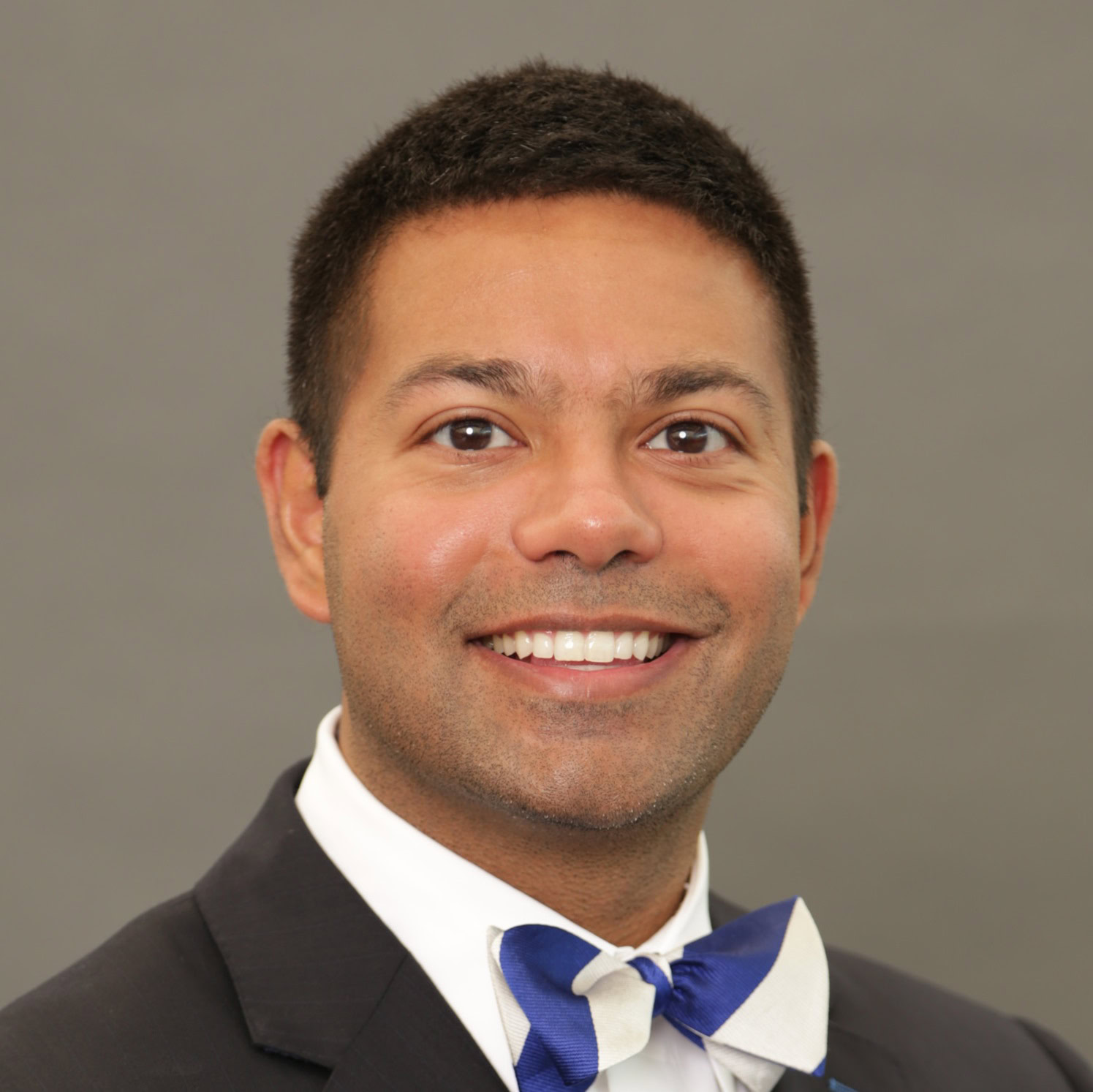
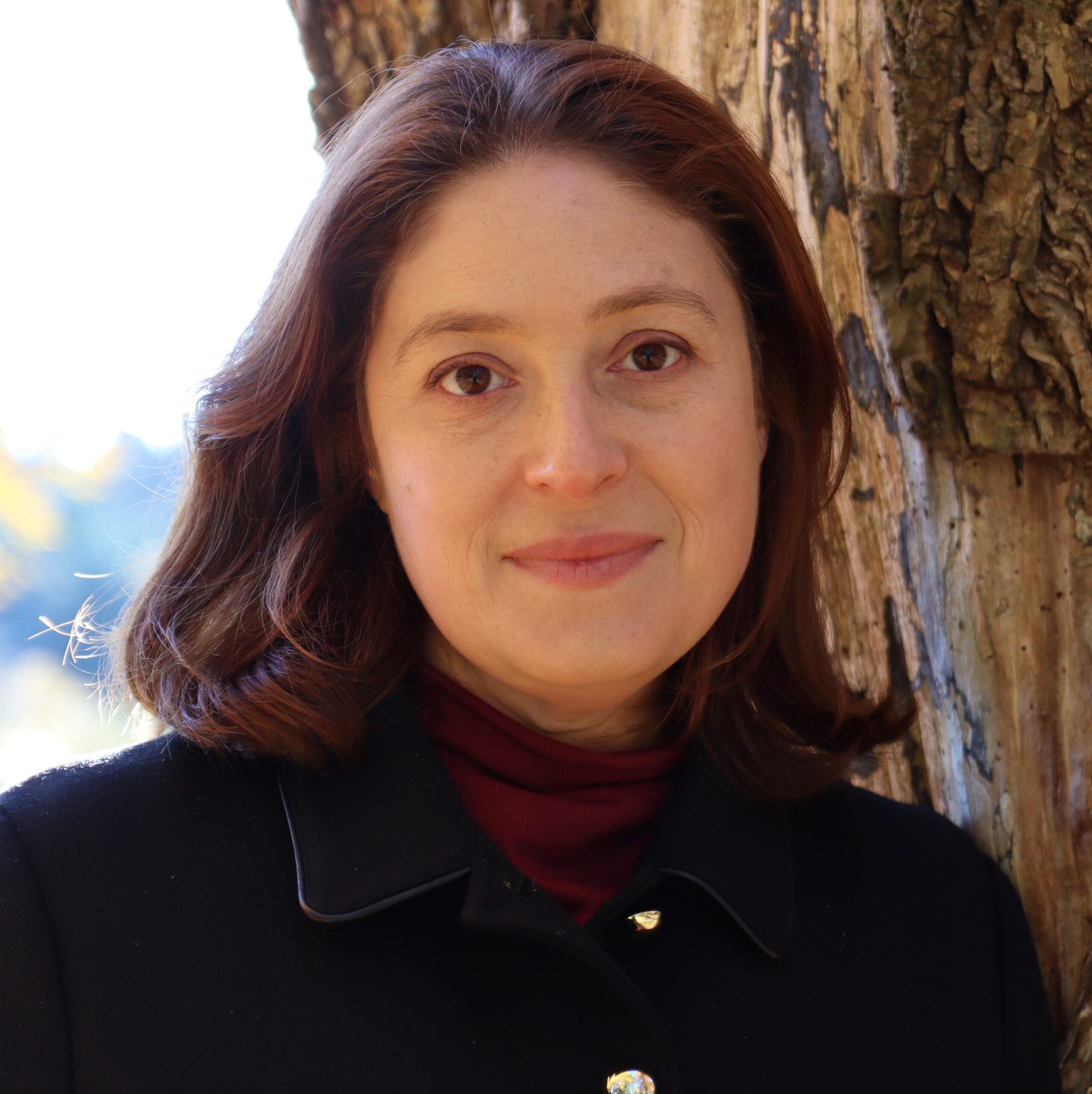
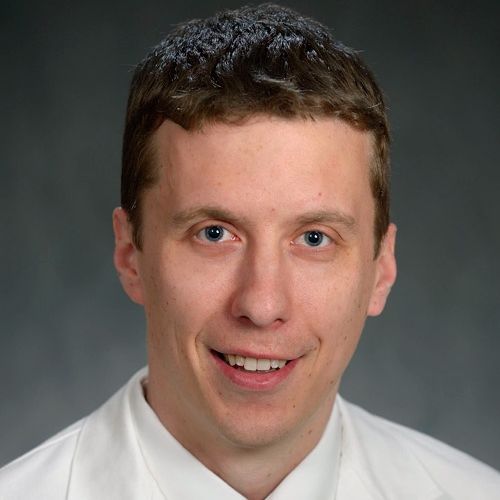

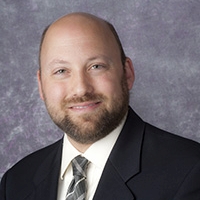
Dr. Garman shares leadership development experience
AGA member, Katie Garman, MD, shares her experience with the AGA Future Leaders Program and the profound results that followed.
Program leadership

Darrell Pardi, MD, MS
Program Director
Professor of Medicine; Chair, Division of Gastroenterology and Hepatology
Mayo Clinic Rochester
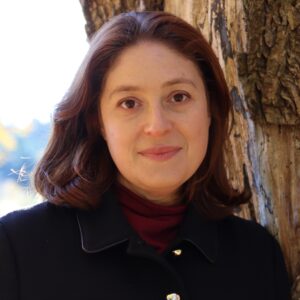
Elisa Boden, MD
Program Alumni Co-Chair
Associate Professor of Medicine, Section Head IBD, Oregon Health and Science University

Nelson Garcia, MD, AGAF
Program Alumni Co-Chair
Gastroenterologist
Gastro Health-Kendall At Baptist Medical Arts Building

Amit Patel, MD, AGAF, FACG
Program Alumni Co-Chair
Professor of Medicine, Division of Gastroenterology, Duke University School of Medicine and the Durham Veterans Affairs Medical Center
View Future Leaders graduates
- Jordan Axelrad, MD, MPH
- Edward Barnes, MD
- Elisa Boden, MD
- Parakkal Deepak, MD
- Renumathy Dhanasekaran, MD
- Luke Engelking, MD, PhD
- Phil Hart, MD
- Patrick Hickey, DO
- Maia Kayal, MD
- Leila Kia, MD
- Joanna Melia, MD
- Amit Patel, MD
- Sonali Paul, MD
- Nicole Rich, MD
- Shazia Siddique, MD
- Pooja Singhal, MD
- Matthew Whitson, MD, MSEd
- Kelley Yan, MD, PhD
- Christen Klochan Dilly, MD, MEHP
- Daniel Freedberg, MD, MS
- Wendy A. Henderson, PhD
- Ruben Hernaez, MD, MPH, PhD
- Animesh Jain, MD
- Avinash Ketwaroo, MD
- Bharati Kochar, MD, MSCR
- David Leiman, MD, MSHP
- James Lin, MD
- Michelle Long, MD
- Aimee Lucas, MD, MS
- Miguel Malespin, MD
- Simon C. Mathews, MD
- Karthik Ravi, MD
- Florian Rieder, MD
- Kyle Staller, MD, MPH
- Christina Twyman-Saint Victor, MD
- Ryan Ungaro, MD, MS
- Arthur Beyder, MD, PhD
- Brigid S. Boland, MD
- Lea Ann Chen, MD
- Bruno P. Chumpitazi, MD, MPH
- Matthew A. Ciorba, MD
- Katherine S. Garman, MD
- Christina Y. Ha, MD
- Bryson W. Katona, MD, MS, PhD
- Peter S. Liang, MD, MPH
- Folasade P. May, MD, PhD, MPhil
- Marty M. Meyer, MD
- Susan N. Ramdhaney, MD, AGAF
- Jonathan A. Rosenberg, MD
- N. Jewel Samadder, MD
- Siddharth Singh, MD
- Maria I. Vazquez-Roque, MD, MSc
- Sachin B. Wani, MD
- Jennifer Weiss, MD, MS
- Rotonya M. Carr, MD
- Silvio de Melo, Jr., MD
- Neelendu Dey, MD
- Nelson Garcia, Jr., MD
- Avlin B. Imaeda, MD, PhD
- Gilaad G. Kaplan, MD
- Sonia S. Kupfer, MD
- Benjamin Lebwohl, MD
- David J. Levinthal, MD, PhD
- Kara Gross Margolis, MD
- Walter G. Park, MD
- Andrew D. Rhim, MD
- Jatin Roper, MD
- Brijen J. Shah, MD
- Aasma Shaukat, MD, MPH
- Savita Srivastava, MD
- Tram T. Tran, MD
- Elizabeth C. Verna, MD, MS










